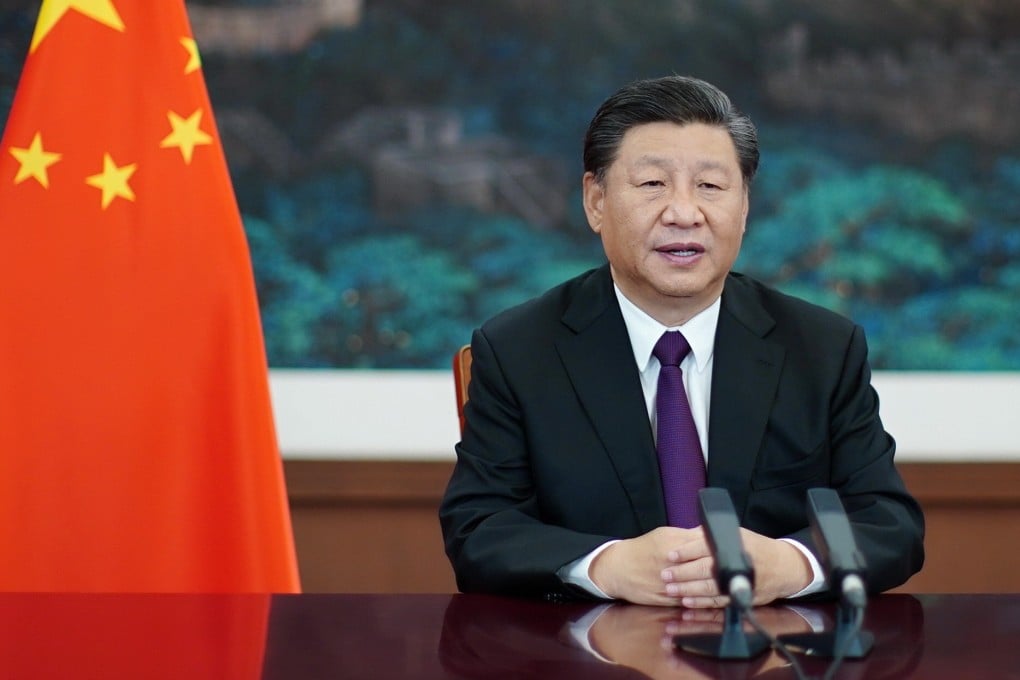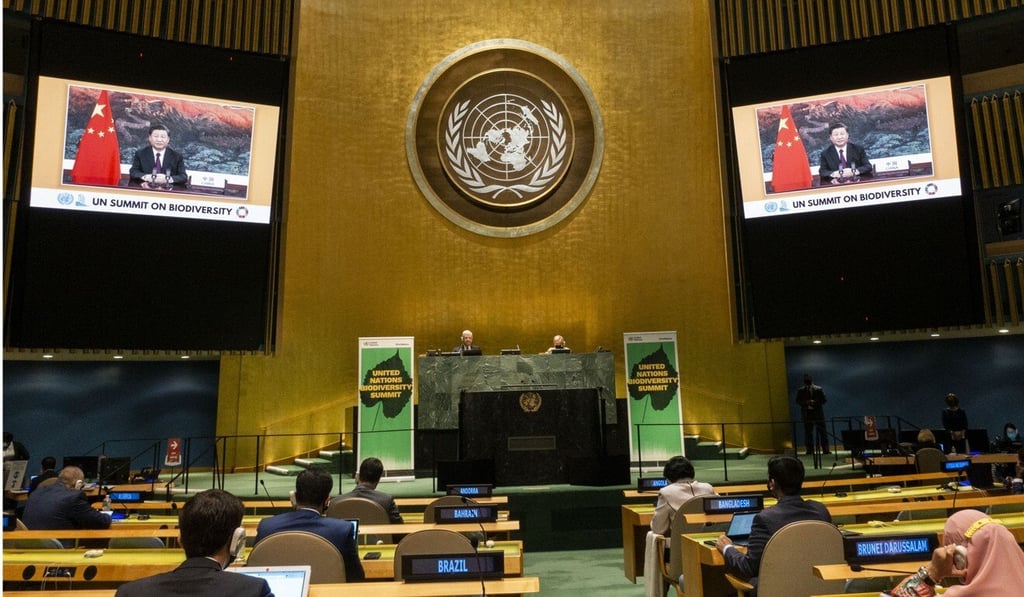UN biodiversity summit: Chinese president takes veiled swipe at US over unilateralism
- Xi Jinping calls for more cooperation and says China takes seriously its obligations under environmental treaties
- Speech follows last week’s pledge to become carbon neutral by 2060

Chinese President Xi Jinping took a veiled swipe at the United States during a virtual UN summit on Wednesday, condemning unilateralism and calling for more cooperation on biodiversity issues while hailing China’s achievements in the past decade.
Trump announced in 2017 that the US would withdraw from the Paris Agreement, which binds almost 200 nations to set targets for reducing greenhouse gas emissions. With that decision due to take effect next month, Xi made clear that China would not go down a similar path.
“Unilateralism finds no support; cooperation is the right way forward. We must firmly safeguard the UN-centred international system and uphold the sanctity and authority of international rules so as to enhance global governance on the environment,” Xi told the summit.
“China takes seriously its obligations under environment-related treaties, including on climate change and biodiversity,” he added.
